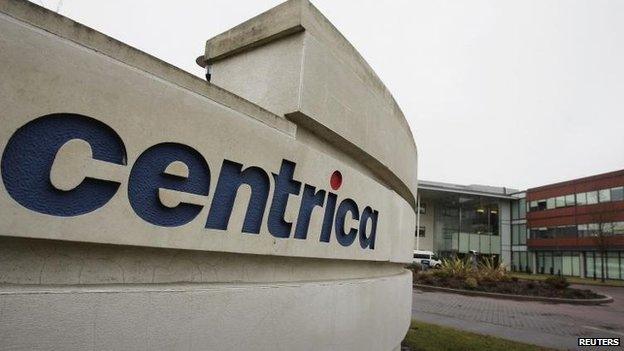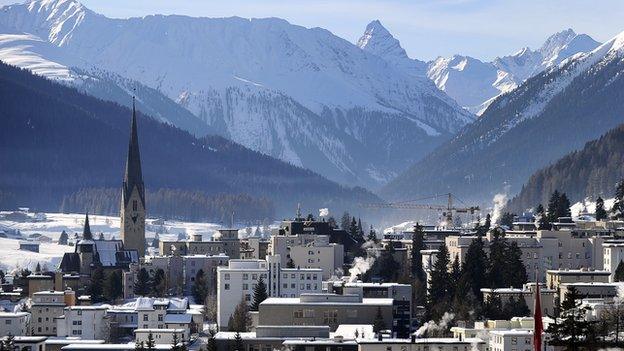Centrica boss urges UK – stay in Europe
- Published
- comments

Centrica boss Iain Conn has been in the job for less than two months and has just announced that profits are down, capital expenditure will be cut and the dividend slashed by nearly a third.
For investors - and the 650,000 individual holders of Centrica shares - that is pretty bad news. The share price is down 8% this morning.
For customers - who have had to buy less gas due to the warmer weather and have seen British Gas prices cut by 5% - it is pretty good news.
Making a profit out of energy is difficult. Now, I've already received a few tweets this morning of the "ahh, diddums" nature.
"Get out the world's smallest violin" was one of the more witty.
But it is worth remembering that if energy generation is not profitable, investment is cut and the threat to energy supply and "keeping the lights on" grows.
Capital is invested where it tends to get the best return.
Mr Conn knows all this, and is careful in his interview with me to be as even handed about politicians, keen to shout at energy companies about their profits, as possible.
Being a political football is never a very comfortable place to be.
'A competitive Europe'
On one of the major political debates, though, he is definite. There are more advantages to Britain being in the European Union than out of it.
"In my view Britain is better off inside Europe," he told me.
"Britain needs to be as competitive as possible.
"The global landscape is changing.
"There are some new competitors who we haven't seen for 100 years, such as China and India and they are very big, as big as Europe in total or bigger.
"And therefore we need to make Europe as efficient as possible and as competitive as possible.
"That means we should be part of a competitive Europe. I recognise that the track record isn't a good one, but actually we have to look forward in a future context not a past one."
Europe and Britain's place in it will be one of the major debates of the election.

World political and business leaders met in Davos last month
At the World Economic Forum in Davos, I interviewed the President of Goldman Sachs, Gary Cohn, who raised similar concerns about leaving the EU.
There are many businesses that are more sceptical, arguing that Britain could flourish outside the constraints of Brussels.
I ask Mr Conn whether the threat of a price cap on energy bills after the next election - it is Labour Party policy - meant that British Gas hasn't cut prices as fast as it could have done.
"The price freeze - or whatever you want to call it - had absolutely no impact on our decisions on pricing," Mr Conn said.
"We don't set prices for political reasons. We very much set prices to win customers and retain them."
Generally, though, Mr Conn is not a fan of politicians or regulators intervening in markets.
"I don't personally believe that intervening in markets is always a good idea - it can have unintended consequences," he tells me.
"And Britain has one of the most competitive energy markets in the world.
"You can create a situation where because intervention has happened, people don't know when it is going to happen next.
"Because of that people can't plan and because people can't plan they worry about investment and it can have a detrimental effect on investments and jobs and I think we need to be very careful.
"But we will of course engage with whoever gets into Number 10."
As one of Britain's biggest employers, and with the possibility of future job cuts not ruled out, he will have to.